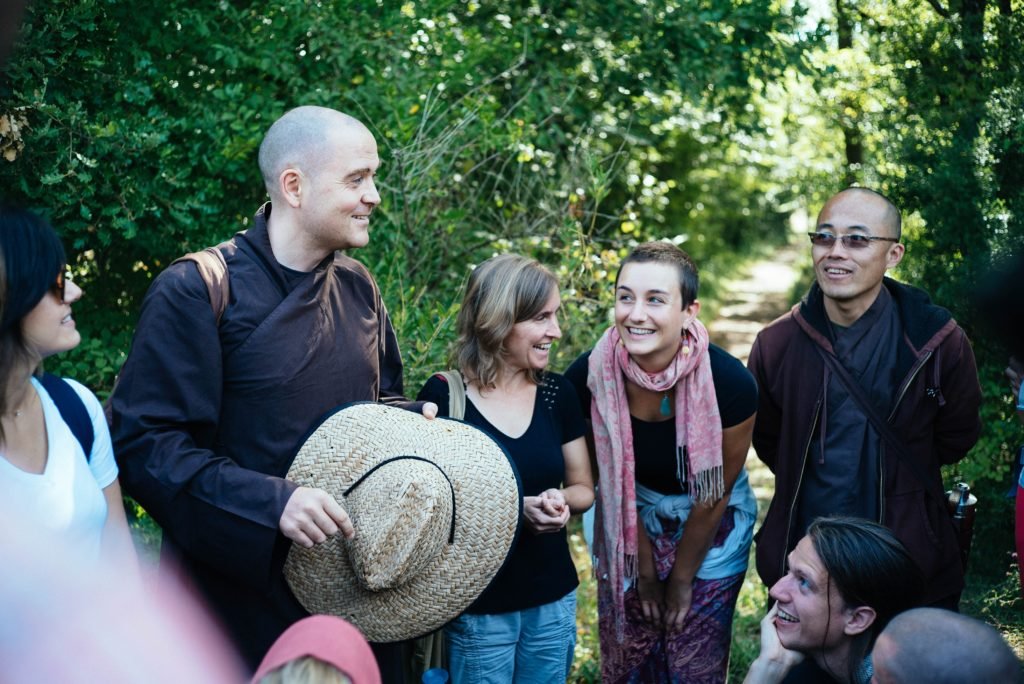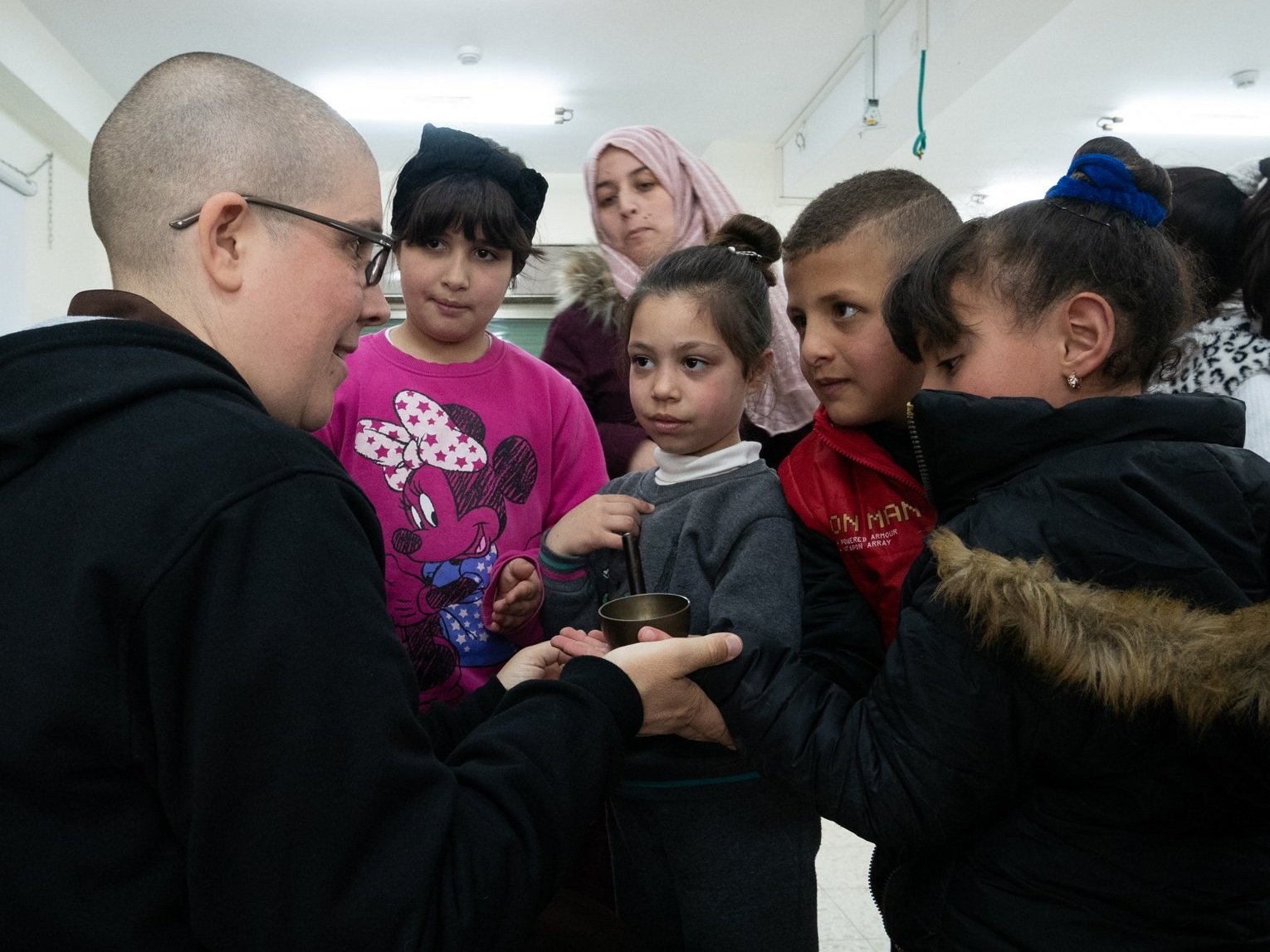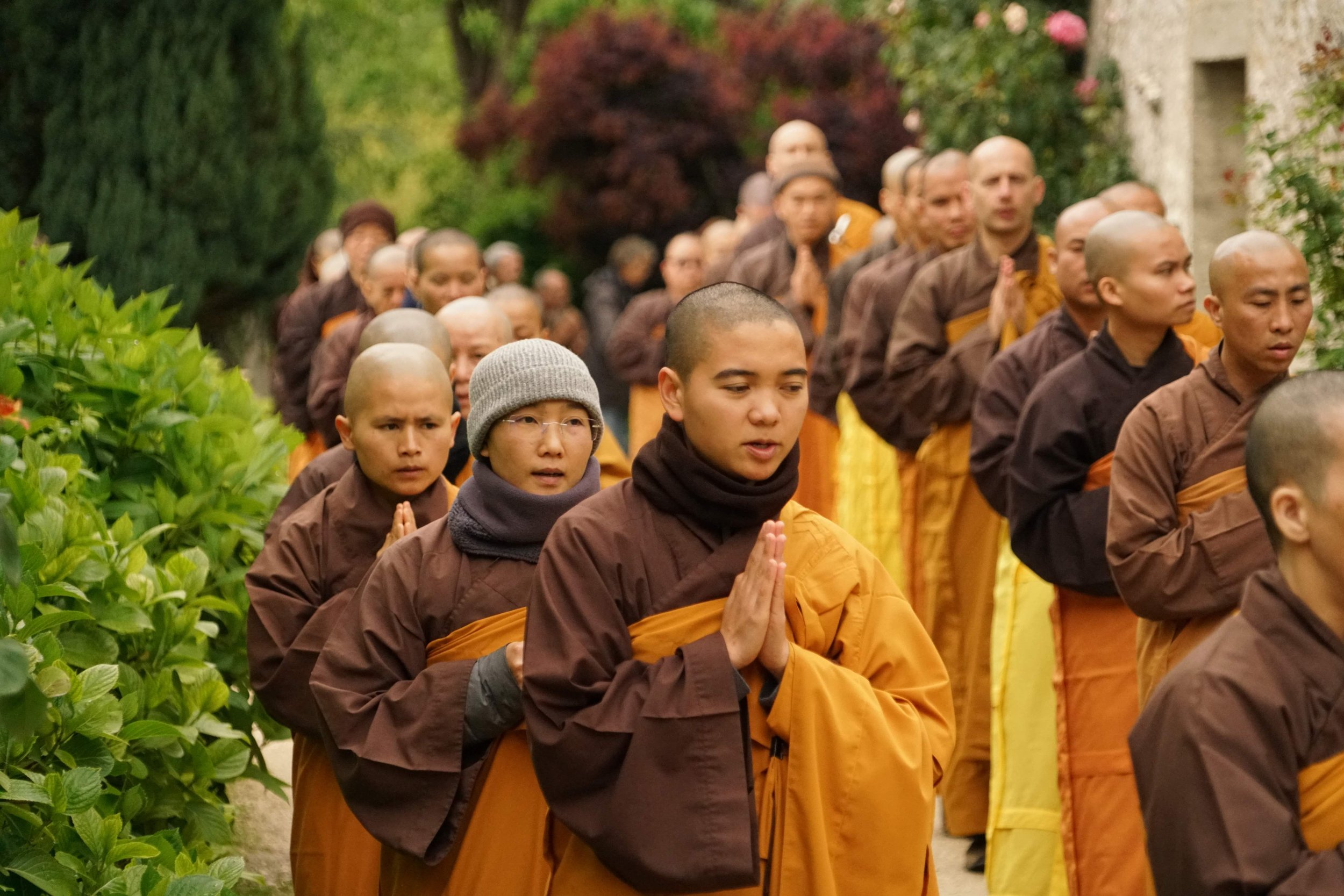The Plum Village Tradition
Plum Village Monastery in France was the first monastic practice center founded by Thich Nhat Hanh in the West. It is where Thich Nhat Hanh developed his iconic light and gentle style of mindfulness practice that is now familiar around the world. We cultivate a kind of mindfulness that doesn’t take a lot of effort, and can bring peace and joy right away. Plum Village mindfulness is also firmly grounded in ethics and in “interbeing”—the understanding that there is a deep interconnection between all people, all species, and all things. Numerous high-profile mindfulness programs, including Google’s Search Inside Yourself course, are based on the Plum Village approach.
The Plum Village tradition is now practiced and taught through eleven official mindfulness practice centers and over 1,000 local Sanghas (communities of practitioners) worldwide. Knowing that community is the most helpful support for practice, we encourage you to join a local sangha or visit one of our practice centers.
The Four Pillars of the Plum Village Tradition
Mindfulness Is a Way of Life
While mindfulness is widely considered to be a method of stress relief, Thich Nhat Hanh has long taught that mindfulness is not a tool, but a way of life. Mindfulness is applied to all aspects of life, including sitting, walking, eating, speaking, listening, emailing, and working. Even simple acts like brushing our teeth or doing the dishes can be done in mindfulness. The Plum Village tradition also uses the Five Mindfulness Trainings, a concrete expression of Buddhist teachings, to bring an ethical and spiritual dimension to decision making.
Engaged Buddhism
Amidst the devastation of the Vietnam War, Thich Nhat Hanh and his colleagues found a way, with mindfulness, to actively help those most in need without losing their own spiritual practice. “Engaged Buddhism” was born—a new kind of Buddhism that is engaged with the challenges of our time, and in which personal spiritual growth and service to society go hand in hand.
Community Building
We all need the support of a spiritual community (Sangha), to help us in our practice. In community, we can strengthen our practice and transform our suffering and difficulties more easily, and touch deep peace, joy and happiness.Many cities around the world have Sanghas in the Plum Village tradition where we can practice with others. It is also possible to build compassionate communities within our workplaces and schools, learning together to bring positive change to society.
Monastic Community
The Plum Village Community’s dynamic and engaged monastic order is the largest Buddhist monastic community in the West. In each Plum Village practice center, the monks and nuns create a peaceful, joyful, and healing environment where visitors can take refuge and immerse themselves in mindfulness practice. Our monastics continue the tradition from the time of the Buddha, devoting their lives to deep studying, training, and teaching to help the world generate peace and transform suffering. Their commitment to a life of simplicity, harmony, and spiritual training helps ensure that the Plum Village practice will be carried far into the future.




